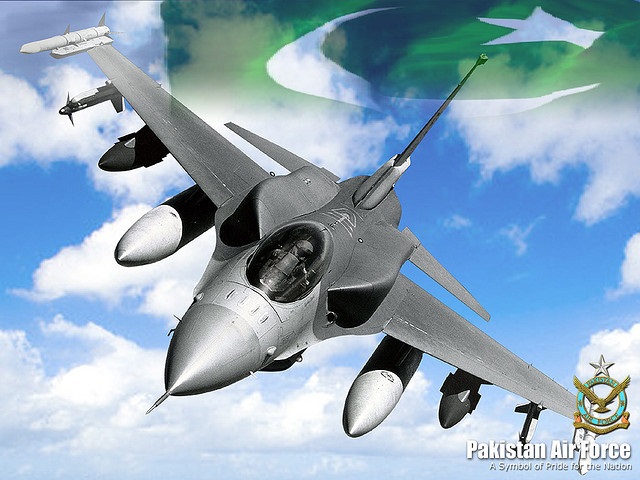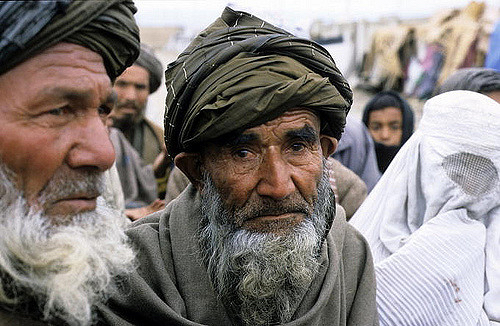Brigadier General S.K. Malik expounds on the purpose of warfare in Qu’ranic Concept of War by inverting the arguments of Carl von Clausewitz. Clausewitz famously argued that war is a “continuation of policy by other means,” while Malik believed that the ethical bases of war forces policy to define and determine its specific parameters.
The difference is quite substantial. Clausewitz’s Vom Kriege discusses war as it is pursued in the name of specific national interests. Vom Kriege presents armed conflict as an inevitable result of mutual competition over resources, territory, and geopolitical influence. Malik responds by looking to the Qu’ran, and presenting moralistic justifications for warfare that are meant to transcend narrow material concerns. He breaks with Clausewitz slightly by arguing that the military should reflect the demands of Islamic morality, rather than simply being an extension of nationalist aspirations.
Malik begins by disputing the concept of “national interests,” quoting American strategist Bernard Brodie when he states that “national interests are not fixed by nature nor are identifiable by any acceptable standard of objective criteria.” He seems to realize that Clausewitz’s realism overlooks power dynamics within the state itself, and how they interact to determine the category of ‘national interest.’ For Malik, national interests are (to quote Brodie) “the product of fallible human judgement on matters on which agreement within the nation is usually less than universal.” He sees Clausewitz’s writings as far less dependable than Qu’ranic discussions of war, which emphasize the need “to obtain conditions of peace, justice, and faith.”
The problem is clear. Malik’s interpretation of the Qu’ran is as fallible Clausewitz’s meditations on national interests. There is a rich scholarly tradition on the minutiae of Islamic militarism, and it has ensured that agreement within the Muslim ummah has always been “less than universal.” This hypocrisy is clear from Malik’s critique of the Yalta Conference, in which “each side had its own interpretation of what constituted its enlightened national interests. Russia saw her interests in conquering the heart of Europe; the Allies, in the construction of German military might.”
Much of this book’s readership believes that the Qu’ran is fairly straightforward about the nature of jihad, but the reality has always been that jihad is interpreted, proposed, and waged as a result of non-Qu’ranic desires and motivations. Malik is correct when he argues that jihad cannot be seen as “policy by other means,” since the Qu’ran frames it with a moralistic content that is usually excluded from considerations of real politik. However, the manner in which that moral content manifests itself in a certain political situation, and the defence policy that is needed to either protect or realize it, has always been subjective.
As we have explored in previous articles, Malik’s own motivations are fairly obvious. For instance, he argues explicitly that “the considerations of peace come to mind only when the choice is between ‘suicide’ and ‘coexistence.’” This implies that warfare is an unavoidable aspect of human affairs, and that exhaustion with it only results from conditions of total war that threaten to destroy all actors if they do not find a way to get along.
Similar meditations were popular in countries like Germany and Italy following the end of World War I, and indeed, the choice of “suicide” was crucial in framing a nihilistic fascist project in Central Europe. Malik and his contemporaries became drawn to similar ideas as a result of historical events, most notably including the Pakistani military’s conduct in the 1971 India-Pakistan War that led to the independence of Bangladesh.
As a result of wider political changes, and serious threats from leftist factions in Pakistan itself, military officials like Malik looked to the Qu’ran with the intent of crafting a larger project of counterinsurgency, galvanized by a concept of jihad that would preserve the military’s hegemony in the country.
This is precisely why Malik’s work emphasizes discipline, subordination, and the cohesion of the state, even if those objectives arguably violate the Qu’ranic purpose of war, which is “to obtain conditions of peace, justice, and faith” through the “eradication of tyranny and persecution.” As a Brigadier General in late 1970s Pakistan, he simply doesn’t read himself as a manifestation of the latter. Rather, his concern is with the military’s organized political opposition, and its leftist character in particular.
After a historical overview of the Prophet Muhammad’s legal conduct during his own wars, in which he emphasizes harsh treatment of enemy factions that do not reciprocate gestures for peace, Malik writes the following paragraph:
These instructions provide us the basis for adopting a suitable policy and strategy towards the hidden enemy of today that manifests itself in the form of anti-state elements, enemy agents, saboteurs, propagandists and partisans. Should they persist in their evil designs, they are to be treated at par with the known or declared enemy.
He makes the step of fusing the military’s calculation of Qu’ranic interests with the general wishes of the Pakistani Muslim ummah, and from there, links the military’s declared enemies with the ‘traitors’ in the Prophet Muhammad’s era. As a result, total war can be waged against those enemies, because they are disrupting the harmony of Pakistani society, and threaten to bring people away from the path of Allah. Malik goes further to imply that leftist factions do not want peace, which seems to be justified by their mere existence in opposition to the status quo.
Furthermore, Malik sees the path of Allah as a fundamentally dictatorial one, interpreting multiple surahs as saying that enemies must “submit themselves to discipline and stop from infringing orders,” and that the first Muslims gave their enemies “the option to choose between ‘war and submission’.” As a result, the military’s opponents are both national and religious traitors.
Although Malik does cite verses authoritatively, this reading of the Qu’ran says less about the book than the nature of the period. Large numbers of religious Pakistani mandarins actively sought to defend and consolidate their rule with inspiration from the Qu’ran. It isn’t that the Qu’ran naturally leads to Pakistani dissidents being linked to figures that rebelled against the Prophet Muhammad. Malik simply approached the Qu’ran with a preexisting belief that their unwillingness to submit to dictatorial rule meant that they were internal enemies that needed to be dealt with severely.
Of course, this raises an important question. What happens when the preexisting belief changes a bit, and the Qu’ran is used to justify a militant position in response to other factors? What happens if Pakistani institutions are themselves seen as an internal enemy that needs to be dealt with severely, because they are somehow disrupting society and drawing Pakistani Muslims away from the path of Allah, which is self-defined as an ethical abstract?
Malik believes that war frames policy, and that in Pakistan, the Qu’ran must frame conceptions of legitimate warfare. However, in making that move, and calling for the decimation of leftist opponents, he ensured that Pakistani state institutions would eventually be opposed on those same justifications, housed in different interpretations of the legitimate jihad. Malik’s spirit is clear in groups like the Pakistani Taliban, which responds to different social factors with an interpretation of the Qu’ran that frames terrorism against the Pakistani state itself.
Photograph courtesy of Farooq. Published under a Creative Commons License.





